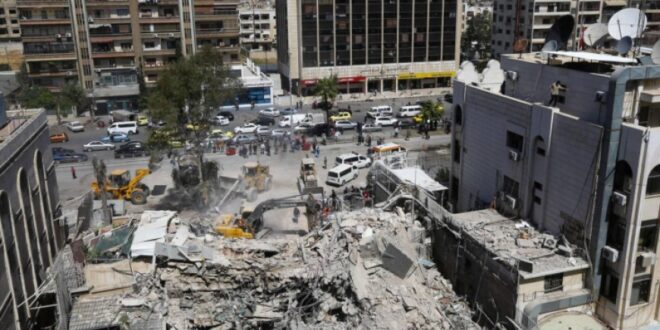The Syrian regime, meanwhile, remains largely indifferent to the national security and cultural identity issues, Wafaa Allouch writes in Syria TV.
This was not the first instance of Israel launching an airstrike aimed at eliminating specific targets deemed a threat. On April 1, Israel conducted a destructive air raid on the Iranian embassy in Damascus, part of the ongoing hit-and-run tactics exchanged between the two nations amidst the Syrian conflict. Historically, Israel had also targeted strategic locations in various cities to neutralize Iranian military figures and assets. The presence of Zahedi and two other senior commanders in the embassy compound 24 hours prior to the attack highlights the ongoing political chess game, further burdening Syrians beyond the longstanding conflicts they have endured.
Experts argue that Israel’s persistent infringements on Iranian interests might shut down avenues for diplomatic discussions between the two nations. Some believe the covert war is foundational to the hidden Israel-Iran conflict, aimed at curtailing Iranian influence in Syria without jeopardizing Israeli gains. Yet, the implications of this shadow war on Syrians and their daily and political lives remain largely overlooked.
The conflict ostensibly represents a broader regional power struggle over influence, evident in the sporadic and targeted nature of military actions that stop short of escalating into a full-blown regional war. Syrians, caught in the crossfire, are increasingly exhausted by the pervasive influence of external powers across their country, leading to socio-cultural and demographic changes, particularly under Iranian influence.
Iran’s involvement has extended beyond military presence to deeper societal impacts, including cultural shifts and demographic changes. Despite political differences among Syrians, there is a shared resistance against what many perceive as Iranian overreach into their sovereignty and cultural identity. The experiences of conflict, displacement, and loss have underscored the severe toll on Syrian lives, with little sign of Iranian withdrawal, despite its purported mission to protect Syria from external tyrants.
The Syrian regime, meanwhile, remains largely indifferent to the national security and cultural identity issues, focusing instead on maintaining power and securing its position through various concessions.
Amidst these dynamics, Syrians continue to bear the costs of power struggles—both historical and current—with many recognizing the urgent need for a transformative revolution that could reinstate the civil peace usurped in the ongoing battle for power.
 Eurasia Press & News
Eurasia Press & News



